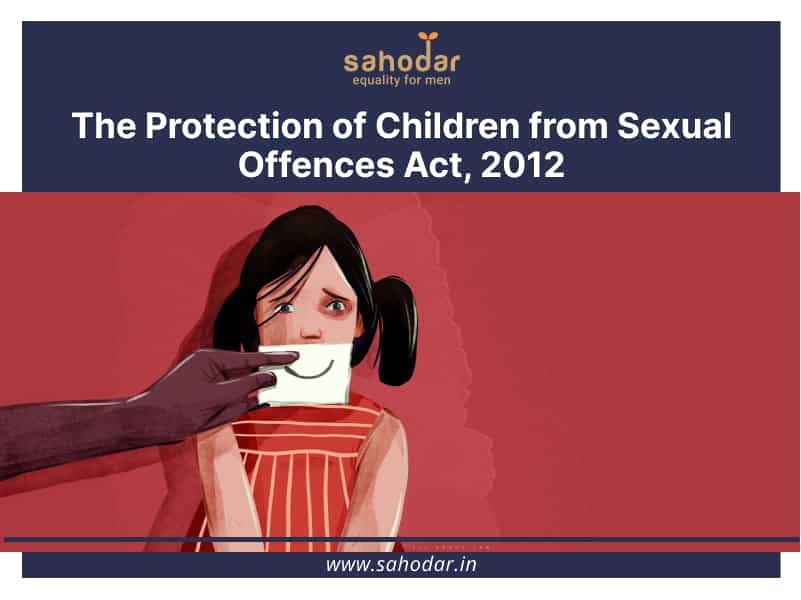In a world where the safety and well-being of children are paramount, legal frameworks play a crucial role in safeguarding their rights. One such significant piece of legislation in India is the Protection of Children from Sexual Offences (POCSO) Act, 2012.
This article aims to provide an overview of the POCSO Act, including its key provisions, objectives, and impact on child protection in the country.
Introduction to the POCSO Act
The POCSO Act was enacted on November 19, 2012, in response to the rising incidences of child sexual abuse and exploitation in India. The Act aims to provide a robust legal framework to protect children from offences of sexual assault, sexual harassment, and pornography. It recognises children as vulnerable individuals who require special protection and ensures their rights are upheld.
Objectives of the POCSO Act
The primary objectives of the POCSO Act include:
- Protection of Children: The Act aims to protect children from sexual offences and to ensure their rights are safeguarded.
- Child-Friendly Legal Process: It seeks to establish a child-friendly legal process, minimising trauma and distress for the child victims during legal proceedings.
- Effective Implementation: The Act emphasises the need for effective implementation by appointing special public prosecutors and establishing special courts to expedite trials.
- Awareness and Prevention: It aims to create awareness about child sexual abuse and exploitation, promoting preventive measures in society.
Key Provisions of the POCSO Act
The POCSO Act contains several crucial provisions designed to protect children from sexual offences. Here are some of the critical aspects:
Definition of a Child
Under the POCSO Act, a child is defined as any person below the age of 18 years. This broad definition ensures that all minors are protected under the law.
Categories of Offenses
The Act classifies various offences against children, including:
- Sexual Assault: Engaging in sexual acts with a child, including physical contact, is considered sexual assault. This can include penetrative and non-penetrative sexual acts.
- Sexual Harassment: This includes any act that causes a child to engage in a sexual act or to receive sexual advances, such as lewd comments or gestures.
- Child Pornography: The Act prohibits the production, distribution, and possession of child pornography, ensuring stringent penalties for offenders.
Mandatory Reporting
The POCSO Act mandates that any person who knows a sexual offence against a child must report it to the authorities. Failure to report such incidents can result in legal consequences for the bystanders.
Special Courts
To expedite the legal process, the POCSO Act establishes special courts for trialling offences under the Act. These courts are designed to ensure that cases are heard swiftly, minimising the time a child has to wait for justice.
Child-Friendly Procedures
The POCSO Act emphasises the need for child-friendly procedures during investigations and trials. This includes provisions for:
- Recording Evidence: The child’s statement is recorded safely and securely, ensuring the process is not traumatic.
- Support Persons: Children have the right to have a support person present during questioning and court proceedings to provide emotional support.
Penalties
The POCSO Act prescribes strict penalties for offenders, with sentences ranging from a minimum of three years to life imprisonment, depending on the severity of the offence. This is aimed at deterring potential offenders and ensuring justice for victims.
Importance of the POCSO Act
The POCSO Act is a significant step forward in the legal protection of children in India. Its importance can be summarised as follows:
- Empowering Victims: The Act empowers child victims to come forward and report offences without fear of stigma or retribution. The mandatory reporting provision encourages society to take responsibility for child protection.
- Creating Awareness: The POCSO Act has raised awareness about child sexual abuse and exploitation, prompting discussions within families, schools, and communities. This awareness is crucial for prevention and early intervention.
- Enhancing Legal Framework: By clearly defining offences against children and outlining specific procedures for handling such cases, the POCSO Act enhances the legal framework for child protection. It ensures that children have access to justice and support throughout the legal process.
- Encouraging Reporting: The Act encourages individuals to report suspected cases of abuse, contributing to a culture of accountability. With the fear of legal consequences for failing to report, more people are likely to take action when they witness or suspect abuse.
Challenges in Implementation
While the POCSO Act represents a significant advancement in child protection laws, its implementation faces several challenges:
- Lack of Awareness: Despite the Act’s existence, many people, including parents and children, remain unaware of its provisions. Increased awareness campaigns are essential to inform society about the Act and the rights it provides to children.
- Stigma and Fear: The cultural stigma surrounding sexual abuse often prevents victims from coming forward. Many children may fear not being believed or facing backlash from their families or communities.
- Resource Constraints: Special courts and trained personnel are essential for effectively implementing the POCSO Act. However, resource constraints and a lack of trained professionals can hinder the timely resolution of cases.
- Delayed Justice: Despite the establishment of special courts, many cases still face delays due to the backlog of cases in the judicial system. Timely justice is crucial for child victims, and efforts must be made to ensure reasonable trials.
Conclusion
The Protection of Children from Sexual Offences Act, 2012, is a landmark legislation that reflects India’s commitment to safeguarding the rights of children. By establishing a comprehensive legal framework, the Act aims to protect children from sexual offences and ensure their access to justice.
While the POCSO Act has made significant strides in enhancing child protection, ongoing efforts are necessary to address the challenges in its implementation. Awareness campaigns, community engagement, and resource allocation are vital to creating a safer environment for children. Ultimately, the successful implementation of the POCSO Act will contribute to a society where children can thrive, free from the threat of abuse and exploitation.

